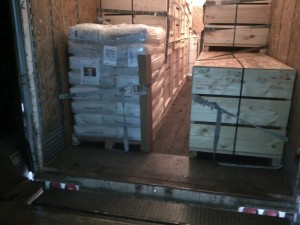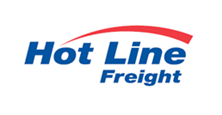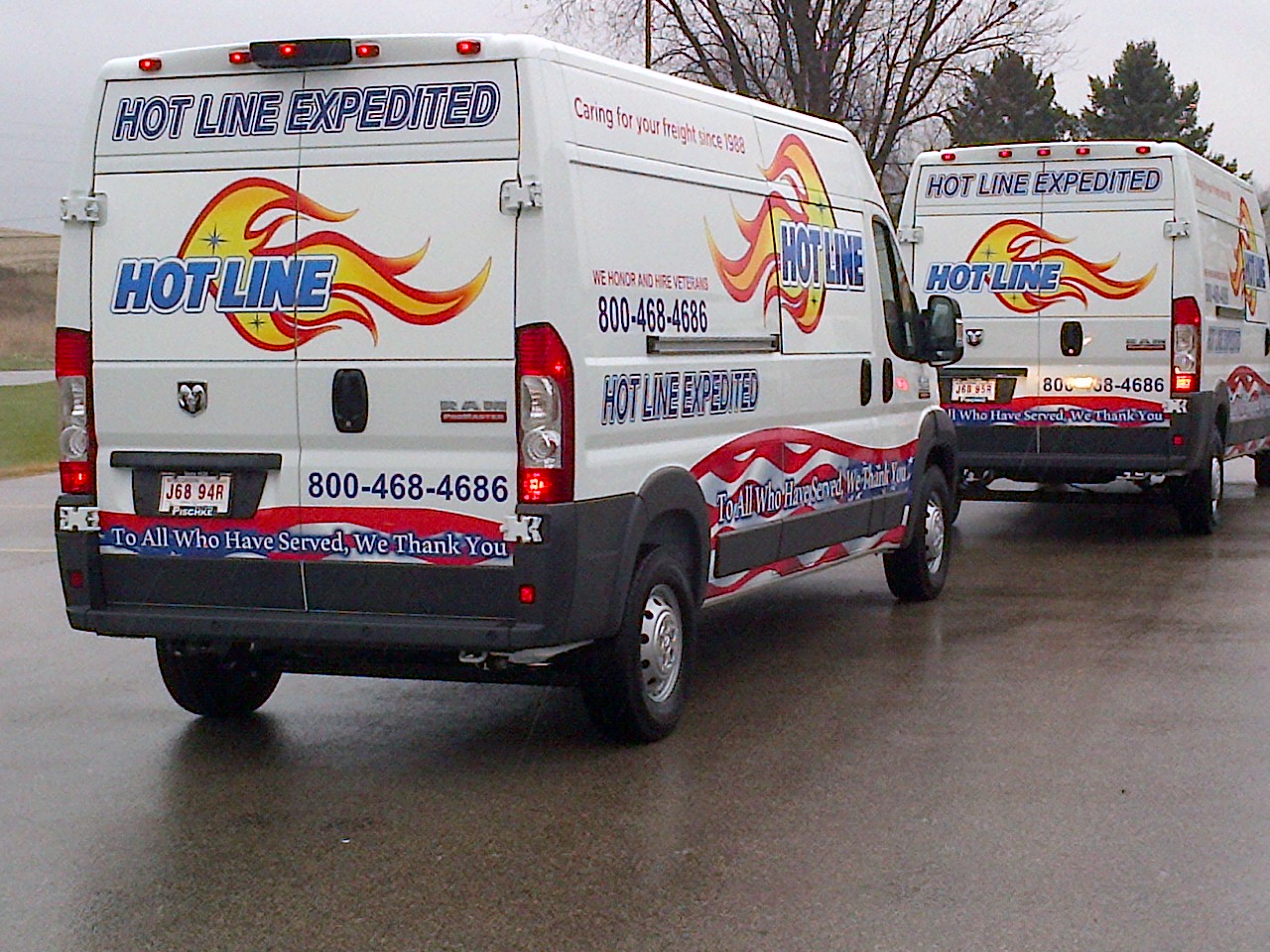LTL Freight Trucking 101 – Glossary of Trucking Terms
What does LTL Freight mean? Non-Goods? Line Haul? Are you new to the trucking industry? If so, welcome to LTL Freight Trucking 101 Glossary of Trucking Terms!
 Part 1 LTL Freight Trucking 101. Classification Definitions of Motor Carriers
Part 1 LTL Freight Trucking 101. Classification Definitions of Motor Carriers
LTL Freight Trucking 101 let’s get started! Truckload – motor carriers operating with loads, whose weight is either in excess of 10,000 lbs or whose load allows no other load to be carried.
Less-Than-Truckload (LTL freight) – motor carriers operating with loads, whose weight is less than 10,000 lbs and whose load allows other loads to be carried. This excludes package carriers, such as Federal Express, UPS, and US Postal Service.
Package – motor carriers operating with loads consisting primarily of small packages less than 150 lbs each.
Personnel – the freight carrying operations of motor carriers operating primarily as transporters of personnel, such as bus and coach lines, excluding emergency vehicles.
Non-Goods – motor carriers operating special equipment vehicles not engaged in the transportation of goods or personnel. This segment includes utilities and construction equipment.
International – movement of goods across a border without any processing or value added to the shipment.
Line Haul – transportation of goods greater than 250 miles from origin to destination, for one motor carrier.
Regional – transportation of goods more than 50 miles but less than 250 miles from origination to destination for one carrier.
Local – transportation of goods less than 50 miles from origination to destination for one carrier.
Off-Highway – primary use of vehicle is off-highway, i.e. construction and agriculture.
For Hire – motor carrier offering transportation services to the general public.
Owner-Operator – An owner of one or more power units who also operates at least one of those power units and who offers hauling services under contract or trip lease.
Regulated – motor carriers operating with ICC authority and whose primary business is for-hire carriage.
Not Regulated – motor carriers operating without ICC authority.
Combined – motor carriers operating as for-hire but without clear distinction as to which segment is their primary focus.
Household Goods – motor carriers whose primary business is the transportation of previously-owned household goods or office furniture for purposes of relocation.
Government – motor carriers owned by government, including state and local. This category also includes the Postal Service.
Private – all other motor carrier types including utilities and airlines.
Part 2 LTL Freight Trucking 101. General Freight and Motor Carrier Terminology
CLASS I MOTOR CARRIER – For-Hire motor carrier receiving annual gross operating revenues of $5 million or more from motor carrier operations. Prior to 1980, the revenue classification level was $3 million.
CLASS II MOTOR CARRIER – For-Hire motor carrier receiving annual gross operating revenues of $1 million to $4,999,999 from motor carrier operations. Prior to 1980, the revenue classification level was $500 000 to $2,999,999.
CLASS III MOTOR CARRIER – For-Hire motor carrier receiving annual gross operating revenues of less than $1 million from motor carrier operations. Prior to 1980, the revenue classification level was $500,000 or less.
CLASS I-VIII TRUCK – Truck with following gross vehicle weight (GVW):
| Class | GVW |
|---|---|
| I | 6,000 lbs. or less |
| II | 6,000 – 10,000 lbs. |
| III | 10,000 – 14,000 lbs. |
| IV | 14,001 – 16,000 lbs. |
| V | 16,001 – 19,500 lbs. |
| VI | 19,501 – 26,000 lbs. |
| VII | 26,001 – 33,000 lbs. |
| VIII | 33,001 or more lbs. |
COFC – Container on (rail) flat car. A form of intermodal movement of freight.
COMBINATION VEHICLE – An equipment configuration that includes separate power unit (tractor) and at least one trailer.
COMMERCIAL TRAILER – A trailer used to handle freight in the transportation of goods for others; excludes house trailers, light farm trailers and car trailers.
DOLLY – An auxiliary axle assembly having a fifth wheel used for purpose of converting a semitrailer to a full trailer.
DOMESTIC INTERCITY TRUCKING – Trucking operations within the territory of the United States, including intra-Hawaiian and intra-Alaskan, that carry freight beyond the local areas and commercial zones.
DOUBLE – A combination of two trailers pulled by a power unit. Usually refers to a power unit pulling two 28′ trailers. See also ROCKY MOUNTAIN DOUBLE and TURNPIKE DOUBLE.
EXPENSES – The cost of doing business, generally excludes current obligations on long term debt.
FIFTH WHEEL – A device used to connect a semi-trailer and tractor.
FREIGHT – Any commodity being transported.
FREIGHT FORWARDER – An individual or company that accepts less-than-truckload (LTL) or less-than-carload (LCL) shipments from shippers and combines them into carload or truckload lots. Designated as a common carrier under the Interstate Commerce Act.
FREIGHT TRAFFIC – Commodities transported.
GENERAL FREIGHT CARRIER – A for-hire carrier that handles a wide variety of commodities, typically in LTL quantities and generally involves the use of terminal facilities to break and consolidate shipments.
GROSS DOMESTIC PRODUCT – A measure of the money value of the goods and services becoming available to the nation from economic activity within the United States.
GROSS VEHICLE WEIGHT (GVW) – The maximum allowable fully laden weight of the vehicle and its payload. The most common classification scheme, used by manufacturers and by states, often for both trucks and tractors.
HEAVY DUTY TRUCK – Truck with a gross vehicle weight generally in excess of 19,500 pounds (class 6-8). Other minimum weights are used by various laws or government agencies.
HIGHWAY USER FEE OR TAX – A charge levied on persons or organizations based on the use of public roads. Funds collected are usually applied toward highway construction, reconstruction and maintenance. Examples include vehicle registration fees, fuel taxes, and weight-distance taxes.
ICC – See INTERSTATE COMMERCE COMMISSION
ICC AUTHORIZED OR REGULATED MOTOR CARRIERS – A for-hire carrier licensed and regulated by the Interstate Commerce Commission to carry freight.
INTERCITY TRUCKING – Trucking operations that carry freight beyond the local areas and commercial zones.
INTERMODAL TRANSPORTATION – Transportation movement involving more than one mode, e.g., rail-motor, motor-air, or rail-water.
INTERSTATE COMMERCE COMMISSION (ICC) – The federal body charged with enforcing Acts of Congress affecting interstate commerce.
ISTEA – Intermodal Surface Transportation Efficiency Act of 1991.
LCV – Longer combination vehicle.
LESS THAN TRUCKLOAD (LTL) – A quantity of freight less than that required for the application of a truckload rate. Usually less than 10,000 pounds.
LTL – See LESS THAN TRUCKLOAD
MODAL SHARE – The percentage of total freight moved by a particular type of transportation.
NATION’S FREIGHT BILL – The amount spent annually on freight transportation by the nation’s shippers; also represents the total revenue of all carriers operating in the nation.
NET PROFIT MARGIN – A measure of profitability based on the ratio of net income to total operating revenues.
NON-REGULATED TRUCKING – A carrier that is exempt from economic regulation, e.g., exempt agricultural shipments and private trucking operations.
OPERATING EXPENSES – The costs of handling traffic, including both direct costs, e.g., driver wages and fuel; and indirect costs, e.g., computer expenses and advertising; but excludes interest expense.
OPERATING RATIO – A measure of profitability based on operating expenses as a percentage of gross revenues.
PIGGYBACK – The transportation of highway trailers or removable trailer bodies on rail cars specifically equipped for the service. It is essentially a joint carrier movement in which the motor carrier forms a pickup and delivery operation to a rail terminal, as well as a delivery operation at the terminating rail head.
POWER UNITS – The control and pulling vehicle for trailers or semi-trailers.
REGULATED MOTOR CARRIER – A for-hire carrier subject to economic and operational regulation by the Interstate Commerce Commission.
REVENUE – Monies paid to carriers as compensation for the movement of freight.
ROCKY MOUNTAIN DOUBLE – A combination vehicle consisting of a tractor, a 45 to 48 foot semitrailer and a shorter 28 foot semitrailer.
SIC CODE – See STANDARD INDUSTRIAL CLASSIFICATION CODE.
SPECIALIZED CARRIER – A trucking company franchised to transport articles that, because of size, shape, weight, or other inherent characteristics, require special equipment for loading, unloading or transporting.
STANDARD INDUSTRIAL CLASSIFICATION (SIC) CODE – A classification of establishments by type of activity in which they are engaged: for the purpose of facilitating the collection, tabulation, presentation and analysis of data relating to establishments, e.g., SIC 42 Motor Freight Transportation and Warehousing; SIC 421 Trucking, Local and Long Distance.
STATE OF DOMICILE – The state in which the carrier maintains its headquarters.
STRAIGHT TRUCK – A vehicle with the cargo body and tractor mounted on the same chassis.
THIRD STRUCTURE TAX – Any tax on road users other than registration fees or fuel taxes. See, for example, ton-mile tax and weight-distance tax.
TOFC – Trailer on (rail) flat car. A form of piggyback movement of freight.
TON-MILE – The movement of one ton of freight a distance of one mile. Ton-miles are computed by multiplying the weight in tons of each shipment transported by the distance hauled.
TON-MILE TAX – A tax calculated by measuring the weight of each truck for each trip. The gross weight is assigned a tax rate that is multiplied by the miles of travel.
TRACTOR SEMITRAILER – A combination vehicle consisting of a power unit (tractor) and a semitrailer.
TRAILER – A vehicle designed without motive power, to be drawn by another vehicle.
TRUCK – A motor vehicle designed to carry an entire load. It may consist of a chassis and body; a chassis, cab and body; or it may be of integral construction so that the body and chassis form a single unit.
TRUCK TONNAGE – The weight of freight in tons transported by truck.
TRUCKLOAD (TL) – Quantity of freight required to fill a truck. When used in connection with freight rates, the quantity of freight necessary to qualify a shipment for a truckload rate. Usually in excess of 10,000 pounds.
TURNPIKE DOUBLE – A combination vehicle consisting of a tractor and two trailers of 45 to 48 feet.
TWIN TRAILER – A short semitrailer (under 29′) designed to be operated as part of a combination vehicle with a tandem trailer of similar length.
VEHICLE-MILE – A measurement of the total miles traveled by all vehicles in an area. Generally applied to intercity movements only.
WEIGHT-DISTANCE TAX – A tax basing the fee per mile on the registered gross weight of the vehicle. Total tax liability is calculated by multiplying this rate times miles traveled.
Here at LTL Freight Trucking 101 we thought you might appreciate links for further transportation research!
Federal Motor Carrier Safety Administration
The Freight Management Branch provides a framework for fulfilling the worldwide freight shipping requirements of federal agencies. The program offers rate management services worldwide for general commodity freight transportation. The Freight Management Branch provides:
- Online booking of freight shipments through TransPort Integrator (TPI);
- Significant savings off commercial rates;
- Over 2,000 approved Transportation Service Providers (TSPs);
- Expert assistance and guidance available from transportation management associates; and
- Standards/requirements of Standard Tender of Service (STOS).
Gasoline and Diesel Fuel Update
US State Department of Transportation Websites




